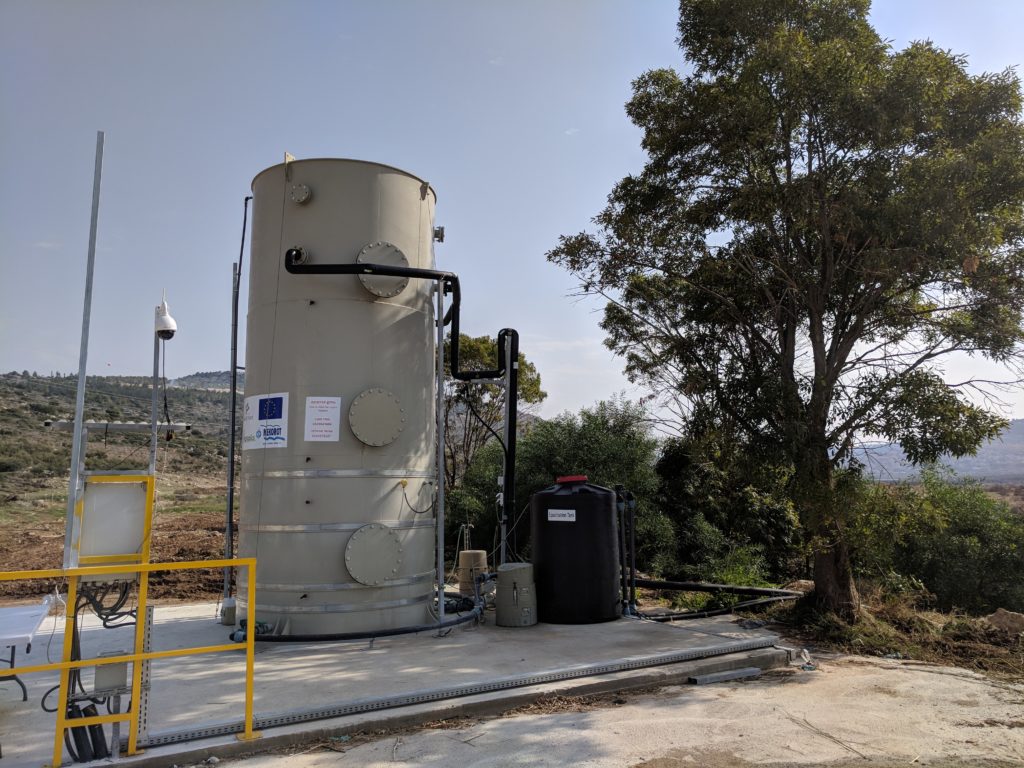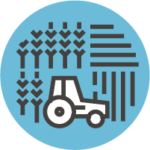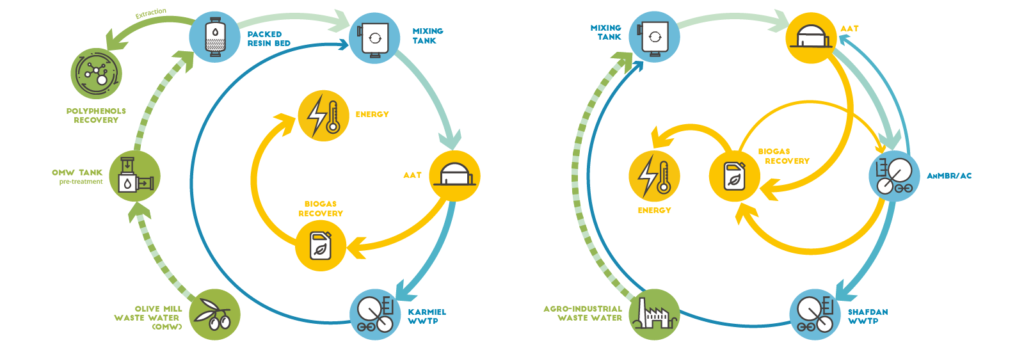Case study addresses energy recovery via biogas production and the recovery of polyphenols within the food industry, especially during wastewater shock loads.
Shock loads of wastewater from olive mills during harvest season impact the municipal wastewater treatment plant in Karmiel, Israel. Finding a technically feasible, economically viable and socially acceptable solution to pre-treat the wastewater on-site and prior to discharge has been challenging.
A pilot plant system will be installed to pre-treat the olive mill wastewater which is rich in polyphenols. By passing the wastewater through an adsorbing resin, it is aimed at recovering 60% of the polyphenolic content. The recovery of these compounds not only brings added-value, but also improves downstream processes which are affected by high polyphenol concentration.
An existing demo-scale system for sludge optimisation is upgraded for improved biogas production from poorly degradable organic matter. Retrofited new anaerobic system into the existing wastewater treatment plant in Karmiel and test its functionality at different scenarios of discharge. It will serve as a barrier for mixed agro-industrial wastewater and protect the aerobic processes against shock-loads of agro-industrial wastewater and reduce high organic load in wastewater streams for a more efficient energy recovery.
A new anaerobic pre-treatment system will also be implemented in Israel´s largest wastewater treatment plant (400.000 m3/d) in Shafdan and be coupled with membrane filtration and activated carbon.




